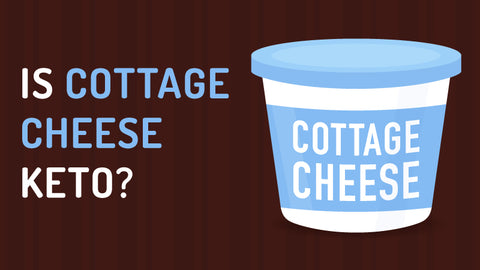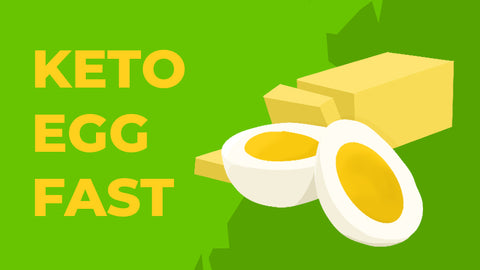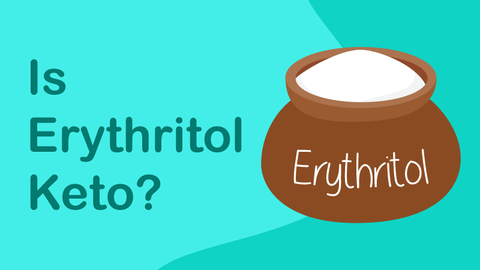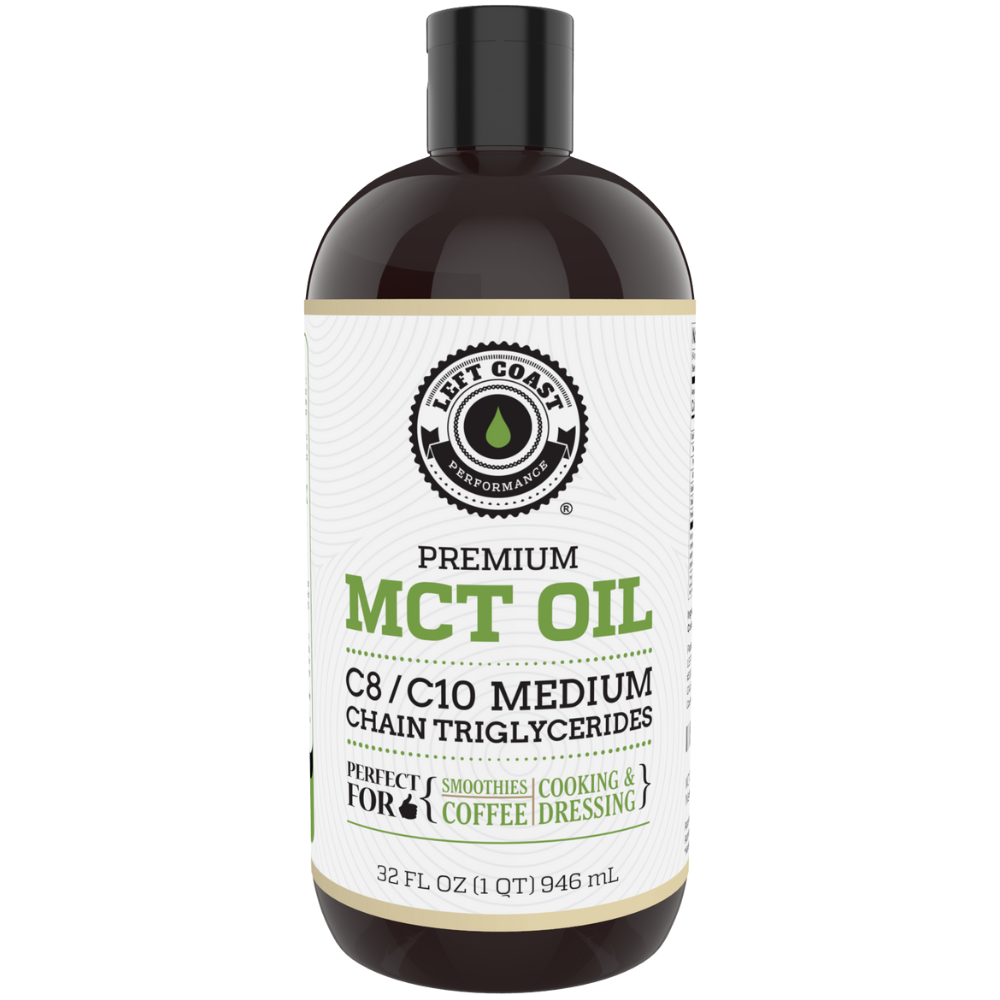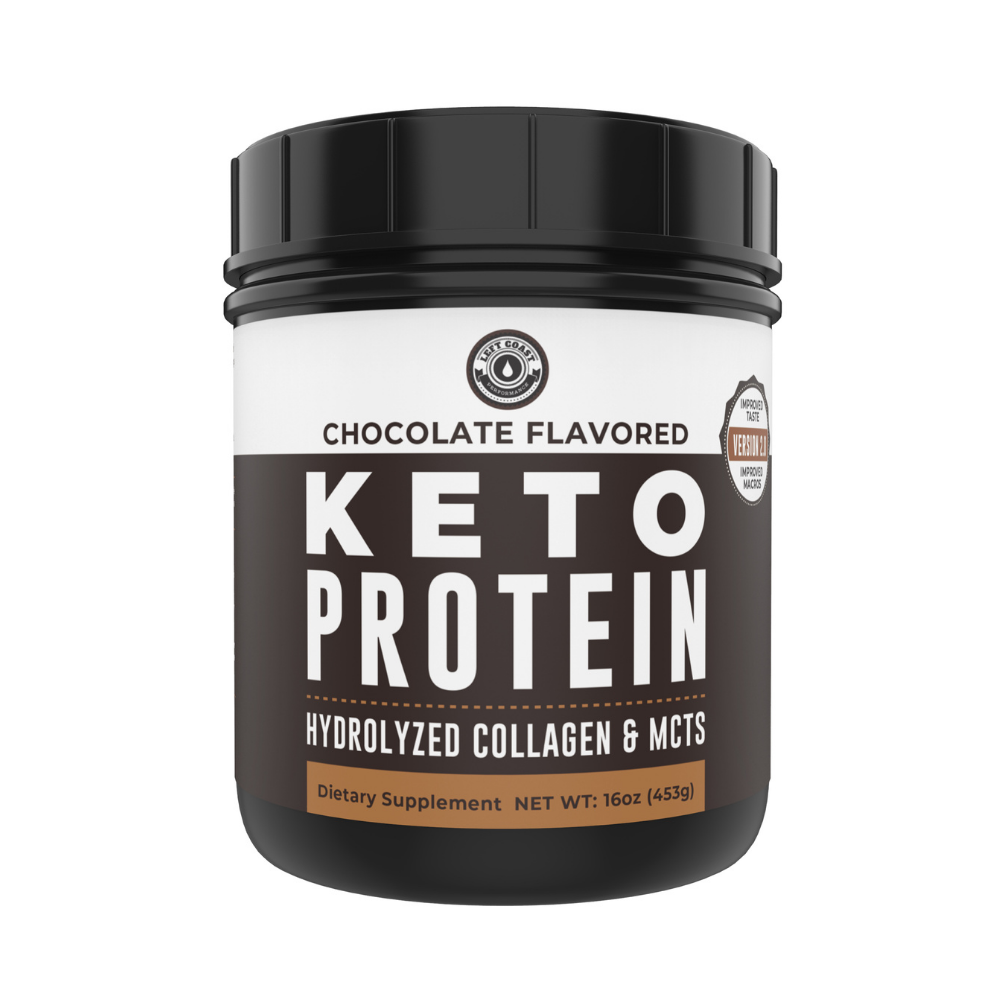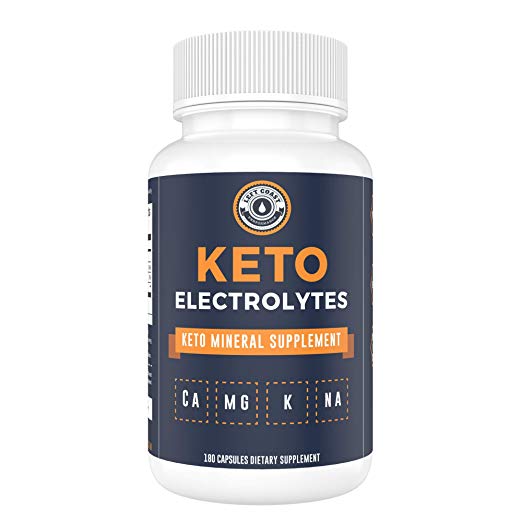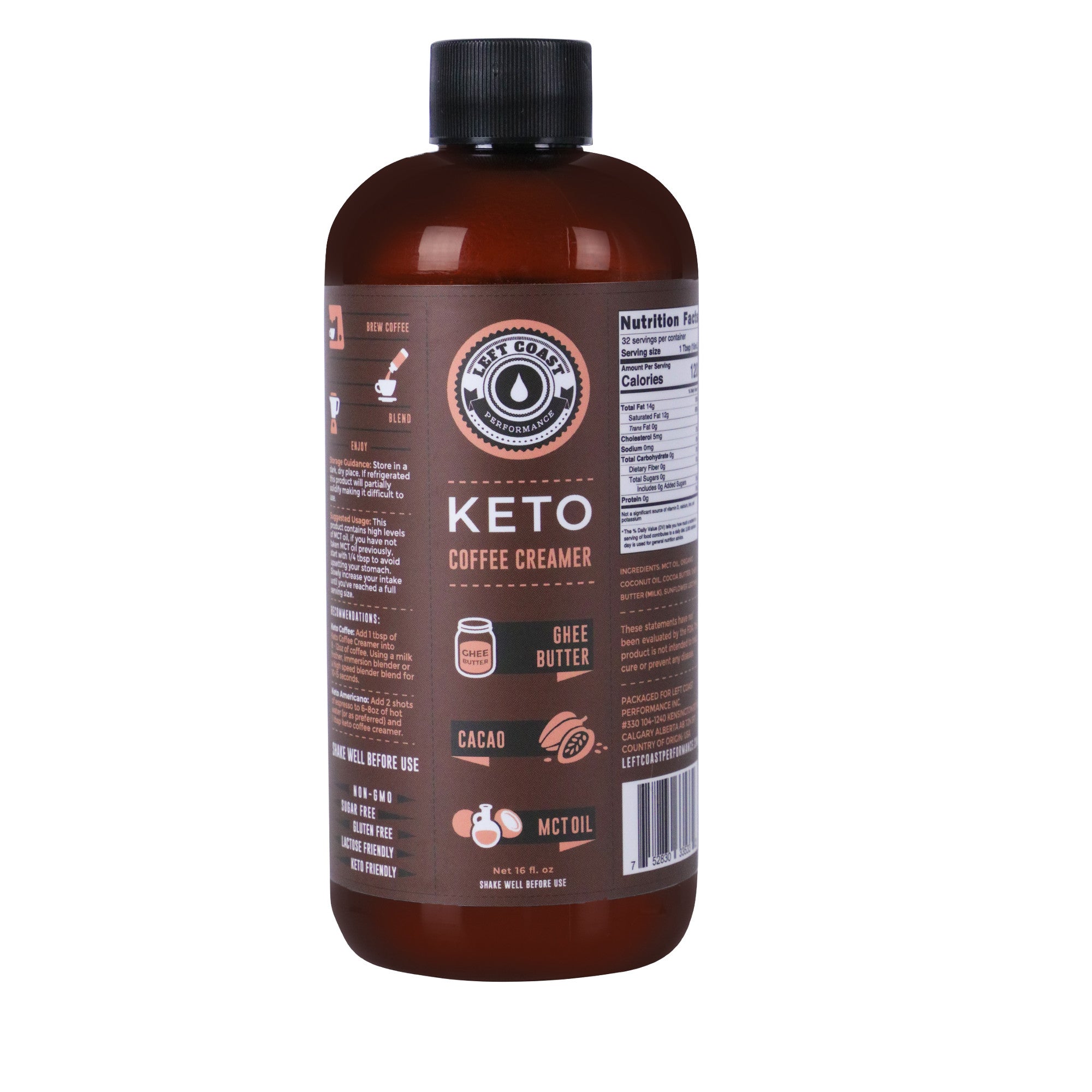Can You Eat Sugar Alcohol on Keto?
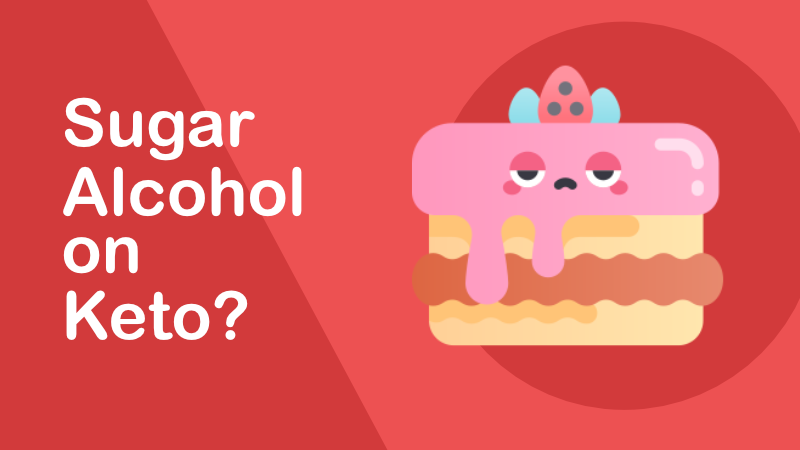
on October 11, 2019
If you pick up a pack of sugar free gum or candy and check out the nutrition label, you might see an ingredient that gives you pause: sugar alcohol. Although the name contains the word ‘sugar,’ this ingredient is structurally and biologically different than the table sugar keto dieters work so hard to avoid.
In this post, we’ll detail some of the most common sugar alcohols, explain how our bodies process them and discuss their place on the keto diet.
What Are Sugar Alcohols?
Sugar alcohols are a type of sweetener commonly used in low-calorie and sugar-free foods. Also known as polyols, they’re a carbohydrate with a chemical structure that’s similar to both sugar and alcohol, but not identical to either. Unlike alcoholic beverages, they do not contain ethanol.
Sugar alcohols can be found naturally in certain fruits and vegetables, but they’re also commercially produced from sugars and starches to harness their sweetening properties. Their sweetness ranges from around 25% to 100% of that of table sugar. In addition to lending foods a sweet flavor, sugar alcohols can add bulk and texture, help foods retain moisture and prevent browning.
Biologically speaking, sugar alcohols are different from sugar in how they’re absorbed by our bodies. Our small intestine does not process sugar alcohols well, which results in them not being fully digested. Thus, we don’t receive the full amount of calories and carbs as we would with table sugar. This makes sugar alcohols an appealing sugar alternative for people looking to control calories and manage their body’s glycemic response to foods.
Popular Sugar Alcohols
While structurally similar, not all sugar alcohols affect the body the same way. Here’s an explainer on a few of the most common types of sugar alcohols.
Xylitol
Xylitol is naturally found in corn cobs, fruit, vegetables, mushrooms and some cereals. It’s as sweet as sugar but contains about 40% of the calories (2.4 calories per gram to sugar’s 4 calories per gram). Xylitol has a glycemic index of 7 and about 4 grams of total carbohydrates per teaspoon.
Xylitol is commonly found in chewing gum, sugar-free candies, mints and oral care products like toothpaste. You can buy it off the shelf in a crystalline form similar to sugar, which is a good option for sprinkling into smoothies or stirring into coffee.
Pet owners should note that while this sugar alcohol is perfectly safe for humans, it can be toxic to dogs even in small amounts.
Isomalt
Isomalt is about half as sweet as table sugar but has little to no impact on blood glucose levels, with a glycemic index of 2. It contains about 2 calories per gram.
Unlike other sugar substitutes, isomalt doesn’t break down or lose its sweetness when heated. It doesn’t absorb much water, so it’s often used in solid products like hard candies and cough drops.
Bakers and pastry chefs love isomalt because it retains nearly all of the physical properties of sugar that are appealing when baking, like the ability to resist crystallization and clumping under humidity.
Sorbitol
Sorbitol occurs naturally in many fruits and vegetables, including apples and berries. It’s manufactured from corn syrup. Sorbitol is about 60% as sweet as table sugar and contains about 2.6 calories per gram (about 30% less than sugar).
Sorbitol is often used in candies, gums, baked goods and frozen desserts. It has a glycemic index of 4.
Erythritol
Erythritol is categorized as a sugar alcohol, but in many ways it’s quite different than the other sweeteners we’ve already mentioned. For starters, its calories are nearly nonexistent, with less than 0.3 calories per gram. Despite this low calorie count, it’s still about 70% as sweet as normal sugar.
Unlike other sugar alcohols, which pass through the digestive system but are only partly or not at all absorbed, erythritol passes directly into the bloodstream before reaching the digestive system. It’s then excreted through urine. For this reason, it has no impact on blood sugar levels. This makes erythritol an ideal sweetener for people like diabetics and keto followers who are looking to manage their body’s glycemic response.
Erythritol comes in a white granular form and can be used nearly anywhere you’d use regular sugar.
Other sugar alcohols you may come across include maltitol, mannitol, lactitol and hydrogenated starch hydrolysates (HSH).
How Sugar Alcohols Raise Blood Glucose
Different sugar alcohols affect blood glucose levels to varying degrees. With the exception of erythritol, which passes directly into the bloodstream, sugar alcohols are only partially absorbed by the digestive system.
We can understand how much sugar alcohols raise blood glucose levels by looking at the glycemic index of each of them. The glycemic index is a scale for ranking carbohydrates based on how much they raise blood glucose levels after being consumed.
Foods with a high glycemic index, or GI, are rapidly absorbed and result in major fluctuations of blood sugar. Foods with a low GI, on the other hand, are absorbed more slowly and have a less marked blood glucose impact.
Pure glucose is at the top end of the scale with a GI of 100, while table sugar has a GI of around 65. Most sugar alcohols range between 0 and 45 on the glycemic index, meaning they impact blood glucose to a lesser extent than sugar and in some cases, hardly at all.
Nutritional Info
Sugar alcohols may be a good alternative sweetener for people looking to lose weight, as they contain fewer calories by volume than regular sugar (typically between 1 and 3 calories per gram versus 4 calories per gram in sugar).
However, the nutrition information for sugar alcohols isn’t as straightforward if you’re looking to count net carbs. Net carbs are the amount of carbs that are absorbed and processed by the body. Fiber, for example, passes through the body unprocessed, so it’s deducted from the total carb count when calculating net carbs.
Some schools of thought, like the Atkins diet, recommend treating sugar alcohols the same way as fiber and completely deducting them when counting net carbs because they don’t contribute to a spike in blood glucose the same way sugar does. Others, like the University of California, take the position that because some sugar alcohols are partially absorbed by the body, we should only deduct half of their carbs when calculating net carbs.
For keto dieters, the most practical approach is to weigh the calculation depending on what type of sugar alcohol is used. Because of the way it passes through the body, sugar alcohol that comes from erythritol can be deducted completely when calculating net carbs. For others, like maltitol, which is on the high end for sugar alcohols with a glycemic index of 52, you might choose to use the approach of deducting half the carbs.
Using Sugar Alcohols on the Keto Diet
In moderation, sugar alcohols can be an effective way to enjoy a little sweetness on the keto diet without slipping out of ketosis. Here are some things to consider when using sugar alcohols on the keto diet.
Advantages
We’ve spent a lot of time talking about glycemic index and blood glucose response. Why is this so important? For keto dieters, a low glycemic index is key to staying in ketosis.
Remember, during ketosis you’re keeping carbs to a minimum so your body is forced to stay in ketone-burning mode. If you spike your blood glucose with high GI foods, you ketosis will quickly be in danger. So, the sugar alcohols that are on the lower end of the GI spectrum present a safe way to sweeten foods without risking your ketosis.
Sugar alcohols also help put a lot of commercially manufactured foods that would be off-limits, like candy, back on the table for keto dieters. You can find 8 of our favorite keto-friendly candies here.
And there’s another thing to smile about when it comes to sugar alcohols--unlike sugar, they don’t react with plaque bacteria in the mouth and thus, do not cause cavities.
Disadvantages
One big downside of sugar alcohols is that when consumed in high amounts, some of them can cause gastrointestinal discomfort, bloating, gas and diarrhea. Experts recommend limiting your intake of sorbitol to no more than 50 grams per day and mannitol to no more than 20 grams per day. For keto dieters, these windows are more than sufficient for normal daily consumption.
Can You Do Keto Without Sugar Alcohols?
The short answer is, absolutely.
With careful planning, it’s entirely possible to rely on sugar alternatives other than sugar alcohols on the keto diet. You can learn more about non-sugar sweeteners like sucralose and acesulfame potassium on our blog. If you prepare most of your meals at home, you can easily control which of these ingredient you use (if any) to achieve sweetness in your food.
If you’re looking to avoid sugar alcohols on the keto diet, the biggest thing you’ll need to be mindful of is buying packaged foods. A vast number of foods labeled ‘sugar free’ and ‘low carb’ contain some form of sugar alcohol. So, be sure to check the labels carefully for the sugar alcohols we’ve covered here.
About Left Coast Performance
Supplement your keto diet with high quality products from Left Coast Performance. We stock products that contain only the finest ingredients that are made to support a healthy keto lifestyle, like protein powder, MCT oil, electrolyte supplements and more. You’ll never find products with artificial flavors, coloring or fillers in our store.
Shop now by visiting www.leftcoastperformance.com. Shipping is free and all orders come with a no-risk money back guarantee. For keto FAQs, recipes and frequently asked questions, check out our blog or follow us on Instagram.


